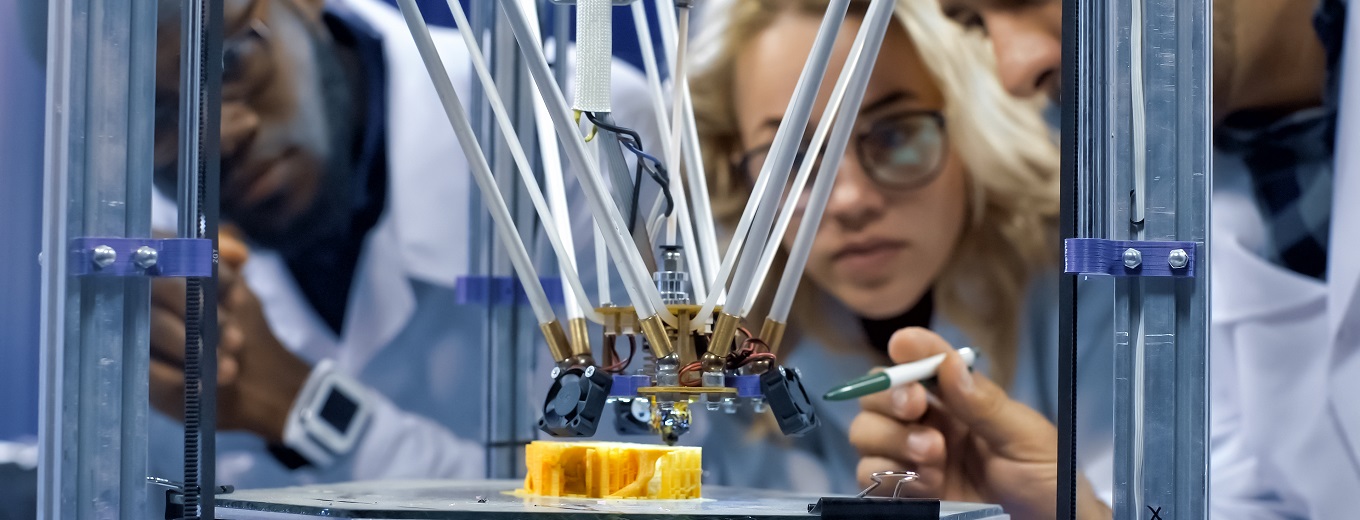Ministers also discussed the future of international R&I collaboration, the Commission proposed an advanced materials strategy, and the MFF revision was approved.
On 15 February, during the informal COMPET Council organised by the Belgian Presidency in La Hulpe, ministers from EU Member States and the EFTA countries discussed structural questions regarding research and innovation (R&I). Three main topics were covered: First, the future of the European Framework Programmes for R&I. Second, how to stimulate intersectoral and interdisciplinary collaboration at every level: universities, research centres, companies, policymakers and citizens. Third, the meeting included a discussion on how technological developments can accelerate industrial decarbonisation and strengthen the EU’s competitiveness. Swiss State Secretary for education, research and innovation, Martina Hirayama, highlighted in her contribution the key role of the European Research Council, which encourages excellence. Furthermore, she underscored the value of cooperation in strategic areas of research and innovation, such as the space sector and quantum technology, with a view to strengthening European competitiveness.
European research and innovation ministers and EU Commissioner for Innovation, Research, Culture, Education and Youth, Iliana Ivanova, affirmed a joint commitment to safeguard the budget of the next framework programme for R&I, in the face of growing pressure to divert EU funds towards other priorities. “We discussed how important it is to have a stable budget for the framework programme,” said Willy Borsus, Vice-President of the Government of Wallonia, during a press conference following the meeting.
Back-to-back to the informal COMPET Council, the Belgian Presidency hosted an International Ministerial Meeting on 16 February in Brussels, which endorsed a Ministerial Statement on principles and values for international cooperation in research & innovation (‘Brussels Statement’). The statement, drafted and supported by the participating countries, stakeholder organisations, the Presidency and the European Commission (EC), emphasises “the importance of shared principles and values as well as of understanding the diversity of principles and values for strengthening diverse and equitable international R&I cooperation in a trusted, open, accessible, inclusive, participatory, non-discriminatory, and safe manner”. The participants call for further action and encourage work on a roadmap to establish a common understanding of principles and values for international R&I cooperation as well as coordination with organisations such as UNESCO, OECD, International Science Council, G7, G20, or the Council of Europe. Iliana Ivanova, EU Commissioner, said: “Scientists and innovators, no matter where in the world they live and work, must be able to reach out to one another and work together across borders and cultural traditions, based on a foundation of mutual trust and understanding. This is what we are working towards: to establish a global ethical compass for research and innovation with people and values at its heart.”
On 28 February, the Council adopted the revision of the EU multiannual financial framework (MFF) for 2021-2027. Just the day before, on 27 February, also the EU Parliament had approved the revision of the EU’s long-term budget. The revision includes a €50 billion Ukraine Facility and a ‘Strategic Technologies for Europe Platform’ (STEP), which aims to make the EU more strategically independent and to foster innovation. The vote in the EU Parliament follows on the respective provisional agreement that was reached between Parliament and Council on 6 February 2024. Horizon Europe will have its €95.5 billion budget cut by €2.1 billion, with €1.5 billion diverted to defence research, following an agreement by EU heads of state at a meeting in Brussels. Member of the EU Parliament, Christian Ehler (EPP, Germany), co-rapporteur for the Industry, Research and Energy Committee said, “we regret the substantial cuts by the Council, in particular on Horizon Europe, where Member States do not live up to their promises on sufficiently funding for innovation and investments”. The amendments to the regulation establishing the MFF will enter into force on the day of its publication in the EU Official Journal and apply, with retroactive effect, from 1 January 2024.
On 27 February, the Commission proposed a strategy for the EU’s industrial leadership in advanced materials, a key enabling technology highly relevant for the twin green and digital transition. The EC Communication proposes actions along five pillars to be implemented with EU Member States and industry. Main actions include the strengthening of the European R&I ecosystem on advanced materials. The development of a “materials commons”, a European digital infrastructure for advanced materials R&I, should allow the fast-tracking of innovative materials to the market. The EC hopes that this will “significantly accelerate the design, development and testing of new advanced materials in a controlled environment, also using AI”. As part of the strategy, the EU will set up a new European Partnership together with the industry under Horizon Europe, aiming at €500 million of investments during 2025-2027, with at least half from the private sector. The EC Communication also foresees the launch of an Advanced Materials Academy with the European Institute of Innovation and Technology to help providing Europe with a stronger advanced materials workforce. Moreover, the package includes the creation of a Technology Council for advanced materials “to advise on the steering of this initiative with Member States, countries associated to Horizon Europe and industry”.

